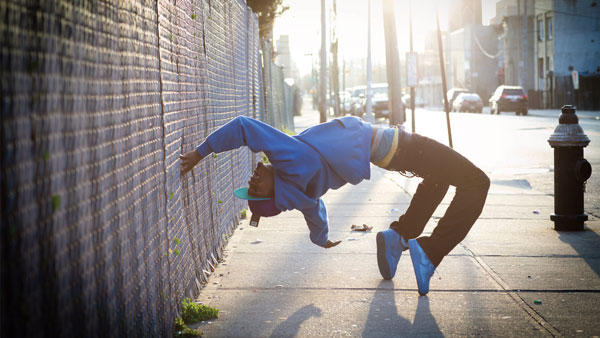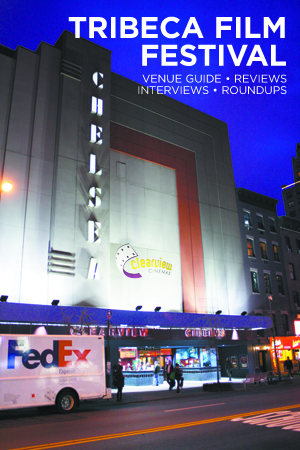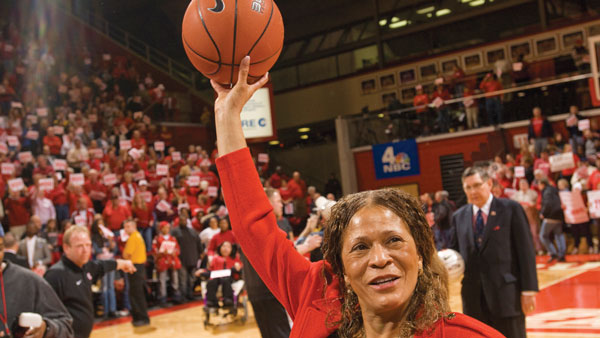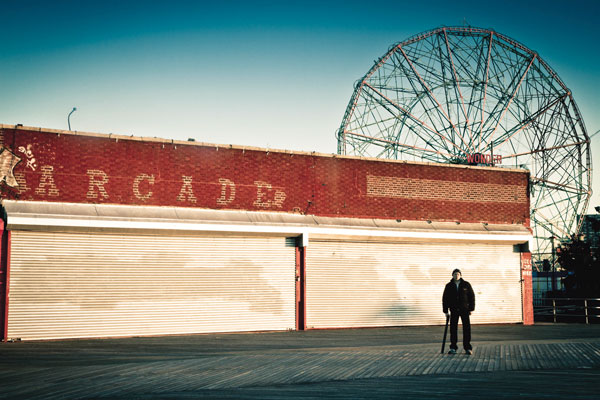
Athletes, entertainers, dancers and directors get the reality treatment
 BY TRAV S.D. | As it has from its inception, the 2013 edition of New York’s hometown Downtown film festival will showcase an impressive slate of documentaries. This year, 61 films from over a dozen countries will grace Tribeca Film Festival screens, with an unsurprising preponderance of them originating from the U.S.
BY TRAV S.D. | As it has from its inception, the 2013 edition of New York’s hometown Downtown film festival will showcase an impressive slate of documentaries. This year, 61 films from over a dozen countries will grace Tribeca Film Festival screens, with an unsurprising preponderance of them originating from the U.S.
In the past, the festival has been accused of not having a theme or a focus. This year’s documentary division does not suffer from that drawback, although the theme that has emerged can’t be said to be a particularly serious one. Given the festival’s close association with Robert DeNiro, it may not shock you to learn of a curatorial preoccupation with the subject of celebrity. Nearly half the films are about the famous, the near famous, the once-famous, the briefly famous or those aspiring to be famous. The most extreme example is perhaps Andy Capper and Juliette Eisner’s “Lil Bub & Friendz” — about Internet “cat-lebrity” and meme of the moment, Lil Bub. Mercifully, the heroes of the other films are human for the most part.
Several are about famous actors. There’s “Richard Pryor: Omit the Logic” by Marina Zenovich, a profile of the late controversial comedian, who passed away in 2005. Not to be outdone, Whoopi Goldberg chimes in with “I Got Something to Tell You” — a documentary about her hero, the pioneering African-American female comic Moms Mabley. “Elaine Stritch: Shoot Me” is a portrait of the Tony- and Emmy-winning actress, legendary for being a hot pistol. Directed by Chiemi Karasawa, it features interviews with Tina Fey, Nathan Lane, Hal Prince and others. “The Battle of amfAR” (by documentarians Rob Epstein and Jeffrey Friedman, of “The Celluloid Closet”) tells the story of how Elizabeth Taylor came to found the first AIDS research foundation.
Famous literary figures are at the center of several docs. Director Barbra Kopple (of the Oscar-winning 1976 coal miners’ strike documentary “Harlan County U.S.A.”) gives us “Running from Crazy” — an up close and personal view of the Hemingway family’s history of suicide and mental illness. “Gore Vidal: The United States of Amnesia,” directed by Nicholas Wrathall, paints a picture of the recently deceased novelist, essayist and screenwriter — with commentary by David Mamet, Christopher Hitchens, Mikhail Gorbachev and others. “Big Joy: The Adventures of James Broughton” (co-directed by Stephen Silha, Eric Slade and Dawn Logsdon) tells the story of an influential beatnik poet and filmmaker, who was a friend and colleague of Pauline Kael, Stan Brakhage and Alan Watts.
There are also a couple of rockumentaries in the festival. Steven Kochoches’ “Who Shot Rock and Roll: The Film” gives us not only every famous rock and roll star, but the photographers who have captured them on film — including Linda McCartney, Edward Colver, Edward Diltz, Jill Furmanovsky, Lynn Goldsmith, Bob Fruen, Norman Seeff, Mark Seliger and Guy Webster. “Mistaken for Strangers” tells the story of an up and coming rock group called The National as they embark on “their biggest tour to date.” The twist is that the film was made by Tom Bernger (the band’s roadie and the lead singer’s brother).

“Coach” Vivian Stringer, celebrating her 800th win at Rutgers University.
The visual arts are also well-represented. “Michael H. Profession: Director” is a portrait of Austrian film director Michael Haneke (“Amour” and “Funny Games”) made by French filmmaker Yves Montmayeur. Then there’s “The Director” — which is not about a movie director, but the current creative director of the House of Gucci (Frida Giannini), as she strives to make her mark at the 82-year-old fashion and clothing firm. “The Director” is co-produced by James Franco and directed by Christina Voros. “Herblock: The Black and the White,” directed by Michael Stevens, tells the story of The Washington Post’s longtime political cartoonist Herbert Block.

Strongman Chris Schoeck (of “Bending Steel”), on the Coney Island boardwalk.
And there are two films about dance. Hilla Medalia’s “Dancing in Jaffa” chronicles the doings of renowned ballroom dance instructor Pierre Dulaine as he teaches both Israeli and Palestinian young people to find positive ways to express themselves. Closer to home, “Flex is Kings,” directed by Deidre Schoo and Michael Beach Nichols, focuses on three Brooklyn flex dancers — a “savvy promoter,” a “local legend” and an “innovator with the talent to take him far from home.”
At least ten of the films in the festival are about athletes and sports figures. Bill Siegel’s “The Trials of Muhammad Ali” talks about the controversial boxer’s troubles with the U.S. government for refusing to serve in the Vietnam War. “The Motivation,” by Adam Bhala Lough, introduces us to “eight of the world’s greatest professional skateboarders.” “McConkey” profiles Shane McConkey, described by some as “the most influential skier ever,” and was directed by no less than five sports documentarians: Steve Winter, Murray Wais, Scott Gaffney, David Zieff and Rob Bruce. “The Diplomat,” directed by Jennifer Arnold and Senain Kheshgi, examines the life of Katerina Witt — described as “one of East Germany’s most famous athletes, winner of six European titles, four world championships and back-to-back Olympic gold.”

Matt Berninger and Tom Berninger.
“No Limits,” directed by Allison Ellwood, tells the story of Audrey Mestre — who overcame scoliosis to become a world-class free diver. “Bending Steel” is a sensitive study by director Dace Carroll about the efforts of Brooklynite Chris Schoeck to become a professional strong man. “Rider and the Storm,” a short executive produced by actress Olivia Wilde, concerns a surfer who lost his home to Hurricane Sandy.
A total of eight percent of the documentaries in the film festival are about basketball. “Wilt Chamberlain: Borscht Belt Bellhop” is a short by Ian Rosenberg about Wilt the Stilt’s time as a teenager working and playing at Kutsher’s Country Club in the Catskills. “Coach,” directed by Bess Kargman, introduces us to C. Vivian Stringer — coach of the Rutgers University Scarlet Knights women’s basketball team at the time of the Don Imus “nappy headed hoes” scandal. “Pat XO” is a portrait of Pat Summitt (the NCAA’s winningest basketball coach), who was forced to retired due to Alzheimer ’s disease. The film was directed by Lisa Lax and Nancy Stern Winters. “Lenny Cooke,” directed by Bennie and Joshua Safdie, is about a promising high school athlete and his failure to get drafted by the NBA.
Even some of the films that are not about sports are about…sports: “Cutie and the Boxer” (directed by Zachary Heinzerling) is about the painter Ushio Shinohara, who creates art by dipping boxing gloves in pigment and punching a canvas. And though, as mentioned, half the documentary films are not about people with high public profiles or those seeking to achieve them, celebrity still has a way of creeping in. “Out of Print,” about the dying industry of book publishing, is narrated by Meryl Streep and has interviews with Scott Turow, Ray Bradbury and Jeff Bezos.































